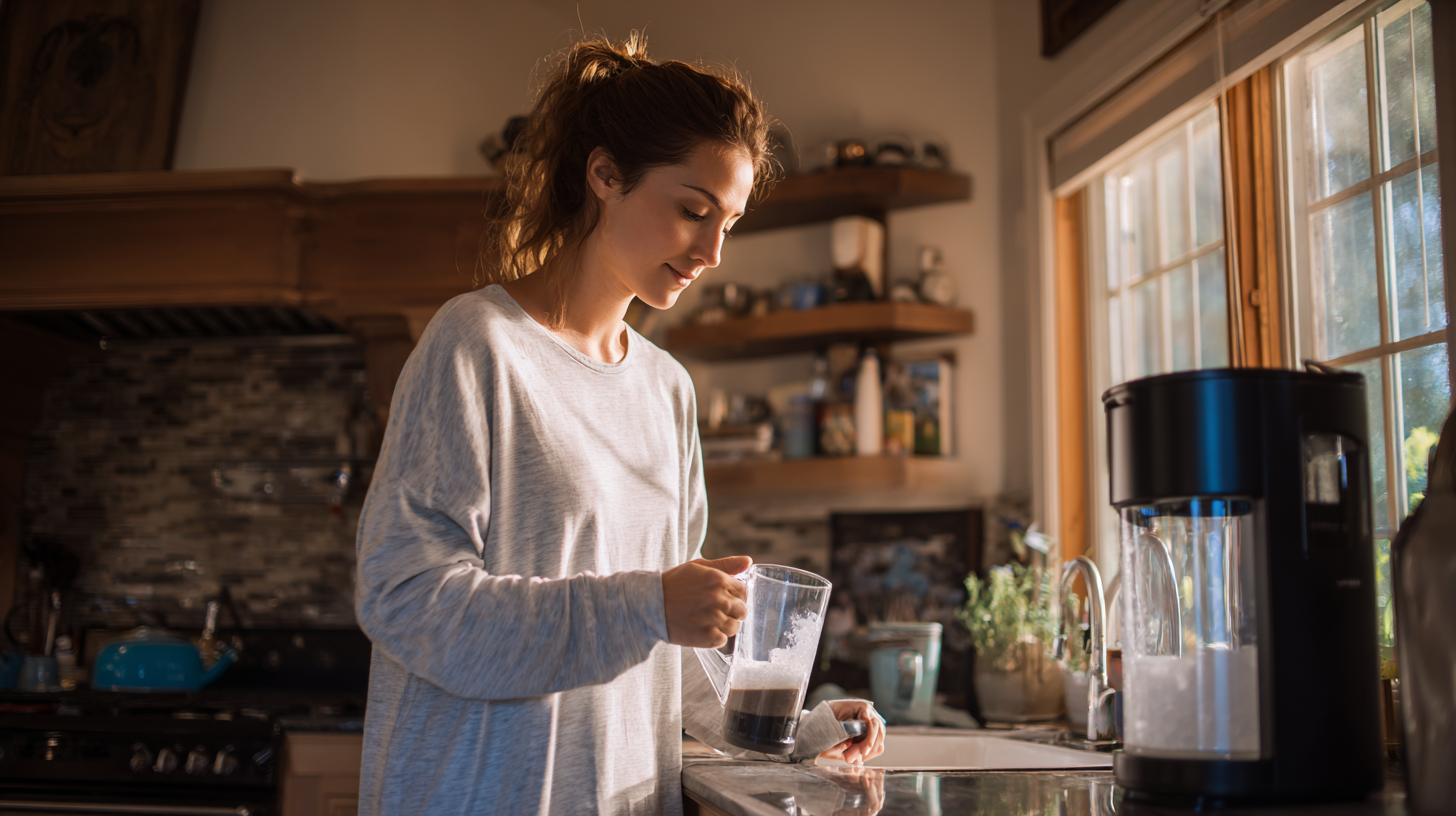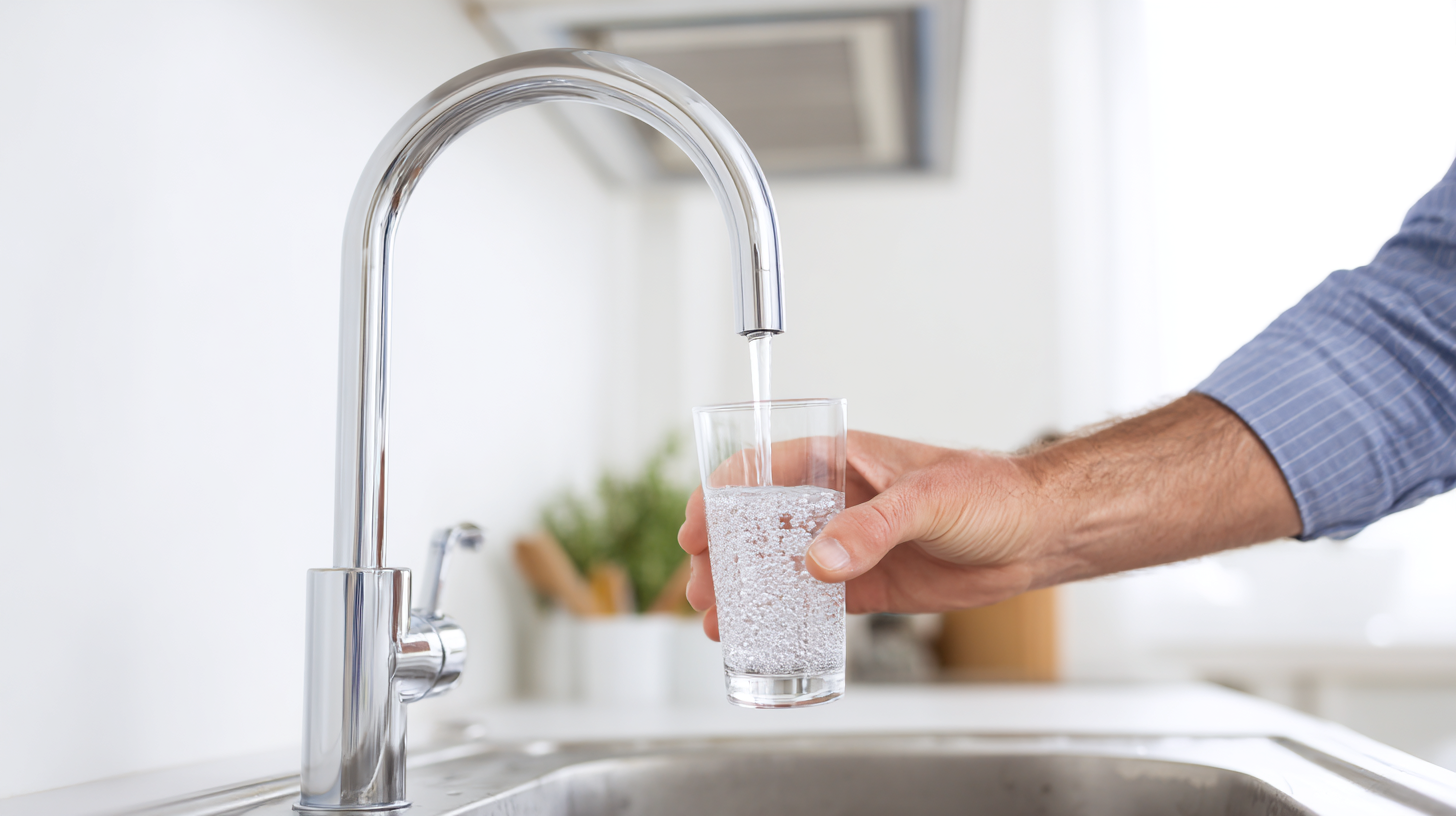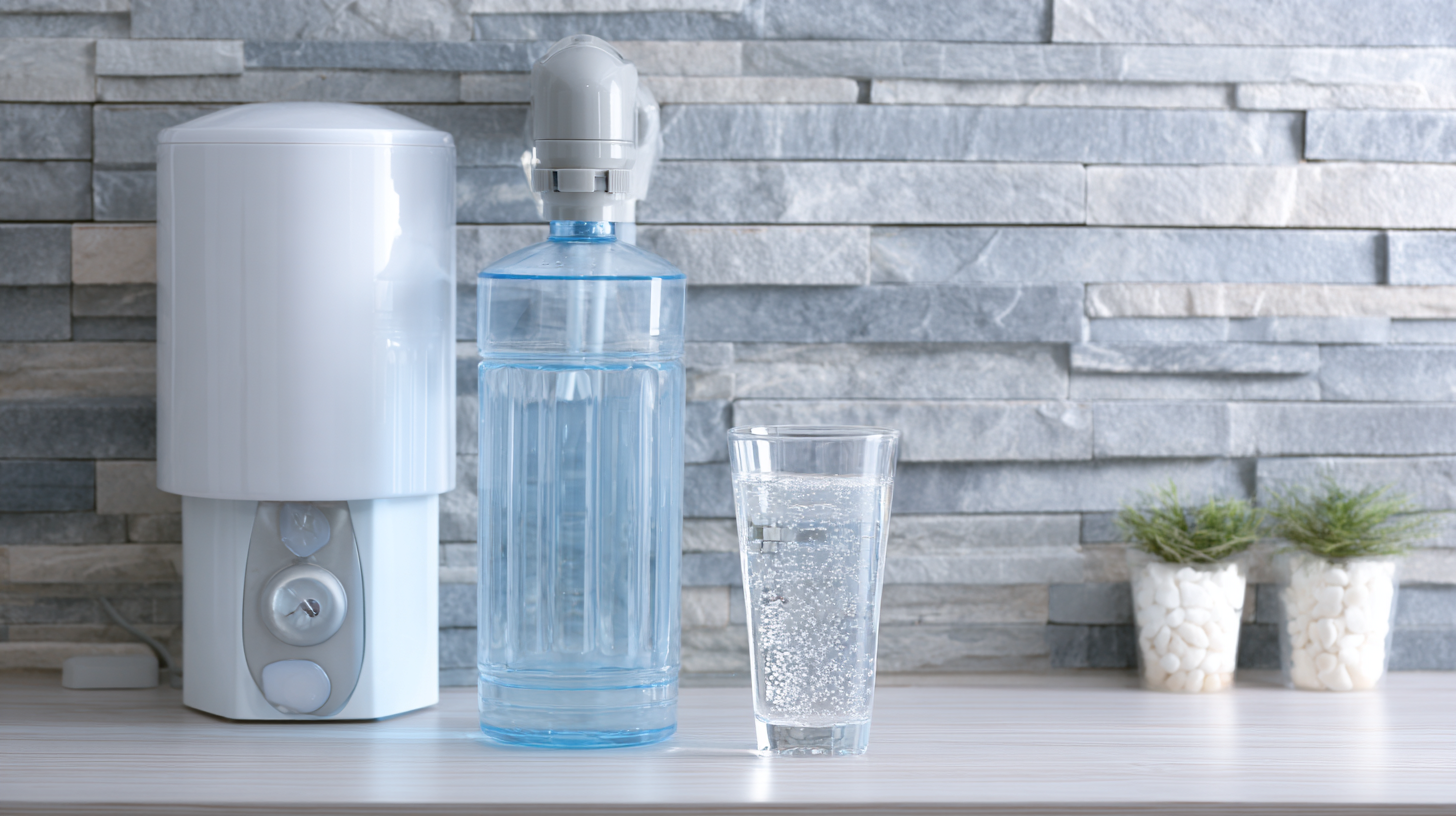

Choosing the right water filter system for your home is not just a matter of convenience; it's a vital step towards ensuring the health and safety of your family. According to the Environmental Protection Agency (EPA), contaminants in drinking water can come from various sources, affecting millions of households across the United States. A recent study by the Water Quality Association noted that nearly 40% of households use some form of water filtration, highlighting the growing awareness of the importance of clean water.

With an overwhelming number of options available, selecting the most suitable water filter system can be daunting. Factors such as the type of contaminants present in your water supply, the specific filtration technology employed, and user-friendly features can significantly influence your decision. An updated report from the National Sanitation Foundation emphasizes that many common filtration systems focus on reducing sediment and chlorine, but fail to address more serious concerns like heavy metals or microbiological contaminants. Therefore, understanding your specific needs and the capabilities of various systems becomes essential in making an informed choice that safeguards your home’s water quality.
Water contaminants can pose significant health risks, making it crucial for homeowners to understand the various types that may be present in their tap water. Common contaminants include heavy metals, such as lead and mercury, which can enter water supplies through corroded pipes and industrial runoff. Both can lead to serious health problems, including neurological damage and developmental issues in children. Additionally, contaminants like pesticides and fertilizers, often from agricultural runoff, can lead to acute and chronic health conditions, including endocrine disruption and various forms of cancer.

Microbial contaminants such as bacteria, viruses, and parasites are also serious concerns. These organisms can enter the water supply through sewage leaks or inadequate treatment processes, leading to waterborne illnesses. E. coli, Giardia, and Cryptosporidium are just a few examples that can cause gastrointestinal distress and severe health complications. Understanding these contaminants and their associated risks is the first step in selecting an effective water filter system that can protect your family’s health and ensure safe drinking water.
When selecting a water filter system, understanding your water source is crucial. Municipal water supplies typically undergo rigorous testing and treatment processes, aimed at removing contaminants and ensuring safety. However, the quality can still vary based on factors such as the age of the infrastructure and seasonal changes. It's important to check water quality reports from local authorities to understand potential issues like chlorine levels or lead contamination, which can affect not only taste but also health.
On the other hand, well water presents its own unique challenges. Unlike municipal supplies, well water is typically not subject to the same regulatory oversight, meaning the responsibility for testing falls on the homeowner. Contaminants such as bacteria, nitrates, or heavy metals can be prevalent depending on the surrounding environment and agricultural practices. Regular water testing is advised to pinpoint specific impurities, which can guide the choice of an effective filtration system tailored to address those specific needs. Understanding the quality of your water source will ultimately help in securing a safe and pleasant drinking water supply for your home.
When selecting the best water filter system for your home, it's crucial to consider key features such as capacity, flow rate, and maintenance requirements. The capacity determines how much water the filter can process; choosing one that meets your household's needs will ensure you always have access to clean water. A system with a high flow rate is essential for maintaining water pressure and efficiency, especially during peak usage times.
Additionally, maintenance should not be overlooked. Regular replacement of filter cartridges or cleaning can significantly impact the system’s performance. Opt for systems that offer easy maintenance options and have clear indicators for when filters need to be changed. This choice helps you avoid any delays in water filtering and guarantees optimal performance.
By focusing on these essential aspects, you can make a smarter decision that enhances your water quality while fitting seamlessly into your lifestyle. Ultimately, a thorough assessment of these features ensures you invest in a reliable and efficient water filter system that caters to your specific needs.
| Feature | Description | Recommended Value |
|---|---|---|
| Capacity | The amount of water the filter can purify before needing a replacement. | 50-100 gallons |
| Flow Rate | The speed at which water flows through the filter. | 1-2 gallons per minute |
| Maintenance Frequency | How often the filter needs to be maintained or replaced. | Every 6-12 months |
| Type of Filter | The kind of filtration technology used (e.g., carbon, reverse osmosis). | Activated carbon, Reverse osmosis |
| Contaminants Removed | Types of impurities the filter is capable of eliminating. | Chlorine, Lead, Sediment |
| Installation | Ease of installation process for the homeowner. | DIY or Professional |
| Size | Physical dimensions of the filter system in relation to available space. | Compact (20x10x10 inches) |
| Warranty | Length and coverage of the warranty provided by the manufacturer. | 1-5 years |
| Cost | Total price of the water filter system. | $50 - $300 |
| Certification | Official certifications that validate the filter's effectiveness. | NSF/ANSI certified |
When selecting a water filter system for your home, understanding performance standards and certifications is crucial. It's essential to know how to read and interpret these certifications, as they can greatly impact the effectiveness of the filter. Look for systems that comply with recognized standards, which indicate they have undergone rigorous testing for contaminants removal. For instance, filters certified for reducing lead or chlorine will closely align with your drinking water quality needs. Be wary of products that lack independent certification, as this might imply a lack of reliability in performance claims.

Additionally, while price can be indicative of quality, our recent tests demonstrated that expensive faucet water filters aren't always necessary to achieve better-tasting water. Many affordable options performed exceptionally well after filtering over 50 gallons. To ensure you're making an informed choice, consider filters that meet specific sustainability standards, such as those based on life-cycle assessments (LCAs) or environmental product declarations (EPDs). This transparency not only highlights the filter's performance but also its overall impact on the environment, allowing you to make a responsible decision for both your health and the planet.
When selecting the best water filter system for your home,
cost analysis plays a critical role. Initially,
you will need to budget for the upfront purchase of the filter system. Prices can
vary significantly based on the type of filter—reverse osmosis,
activated carbon, or whole-house systems.
For instance, a basic pitcher filter might only set you back around $30, while a high-end
reverse osmosis system can cost upwards of $500. It is
essential to assess your specific needs to find a balance between functionality and
affordability.
In addition to the initial investment, long-term maintenance costs should also be factored
into your budget. Replacement filters typically need to be changed every six months to two years,
depending on usage and the type of filtration system. This recurring expense can add up over time,
so it's wise to consider both the cost of filters and installation during your research phase.
Some systems may also require additional maintenance or repairs that could further impact your budget.
By planning for these costs, homeowners can ensure they select a system that meets their needs without
straining their finances.